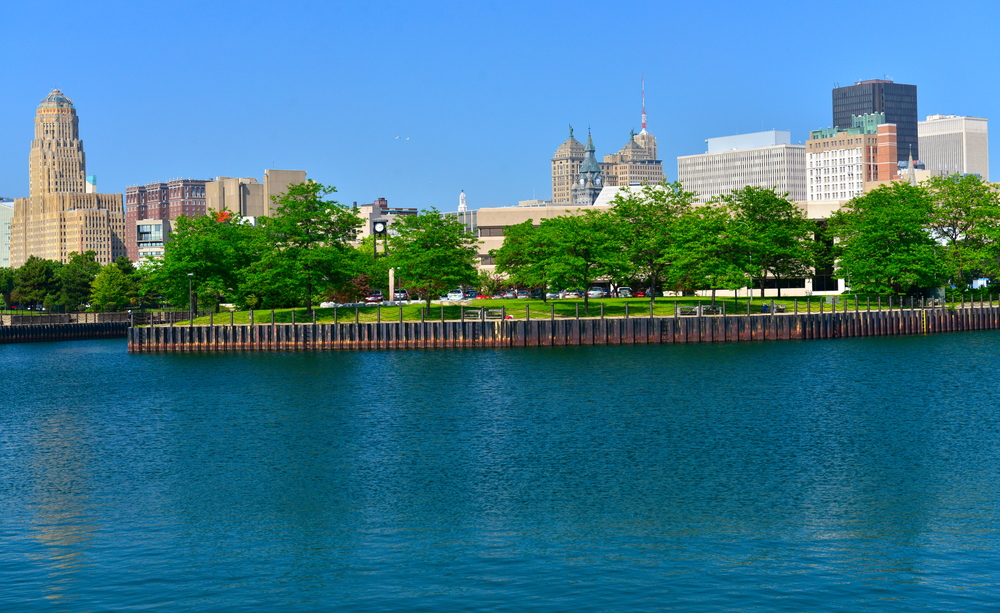Buffalo New York Home Health: Common Terms, How to pay for Home Health, Licensing and Questions to ask
Buffalo is the second-largest city in the state of New York and the seat of Erie county. It lies at the eastern end of Lake Erie on the U.S. border with Canada. Buffalo is home to over 20 theater companies, with many centered in the downtown theater district. In 2015, the National Geographic Society ranked Buffalo third on its “World’s Top Ten Food Cities” list and locals enjoy famous buffalo wings.

- Buffalo New York Home Health: Common Terms, How to pay for Home Health, Licensing and Questions to ask
- About Home Health in Buffalo
- Considerations When Looking for Care in Buffalo
- Cities Near Buffalo
- Pricing and How to Pay For Home Health
- Local Hospital and Healthcare Providers
- Local Resources and Links
- How to pay for Home Health and available coverage
- Questions to ask when looking for Home Health
- Search other areas for Home Health
About Home Health in Buffalo
New York’s population is over 8 million, about 15% of which are seniors and retirees. It is understood that as seniors and retirees continue to age, some may require care at some point. If a person is recovering from surgery and requires care, Home health services are unique in comparison with other forms of care. These services are generally provided so the patient may be in their home while receiving care, as opposed to a long-term facility like a nursing home. Senior Home Health is a level of care designed for individuals who need care while recovering after surgery and other acute health conditions. Home health in New York is there to assist in faster recovery, and allows a patient to discharge from the hospital earlier and reduce future hospital admissions. The individual’s treatment plan (as assigned by the doctor) may include physical and occupational therapy, the monitoring of recovery, injections or wound care. The intention of home health in New York upon completion of the rehabilitation, is so the patient may resume normal function around the house after they’ve recovered. All Home Health agencies must operate under the purview of the New York Department of Health, and any services may only be provided by those persons who have met the training requirements as set by the Department of Health.
Considerations When Looking for Care in Buffalo
Buffalo summers are characterized by abundant sunshine, with moderate humidity and temperatures the city benefits from cool, southwestern Lake Erie summer breezes which temper warmer temperatures. Lake Erie affects the snow in buffalo giving it unique winter characteristics, but it is rarely the snowiest city in New York. With a population of 276,807 and 10 home health agencies, these features and more have led to Buffalo becoming a preferred location for senior citizens to retire.
Home Health Communities near Buffalo, New York
Willcare Chha (buffalo)
Buffalo, New York 14202
People Home Health Svs Chha
Williamsville, New York 14221
Mcauley Seton Home Care Corp Chha
Buffalo, New York 14203
Amedisys Home Health Care (amherst)
Buffalo, New York 14221
Rosa Coplon Jewish Home & Infirmary Chha
Buffalo, New York 14228
Schofield Certified Home Care
Kenmore, New York 14217
Cities Near Buffalo
- Niagara Falls – 19 miles north
- West Seneca – 10 miles east
- Williamsville – 14 miles east
- East Aurora – 20 miles south
Pricing and How to Pay For Home Health
The national average cost of home health care is about $725 / week (based on 40 hours). In New York, the cost of home health will depend on the specific nature of the services. Some services may cost between $18-21 / hour. Other services may cost as much as $35-65 / hour. The ailments and recovery will dictate the necessary care and services. Contact agencies in your area and speak with the physician in charge of the care and service plan.
How to pay for Home Health and available coverage

Medicare:
Generally Medicare reimburses the cost of Home health services. Medicare typically covers your loved one when recovering from an illness or an accident or a surgery.
*Medicare covers the specific ailment. When treatment is completed Medicare coverage stops.
Medicare is not a long-term care solution.
Medicaid:
Medicaid programs are put in place on a state-by-state basis. Each state will have their own regulations regarding the coverage of care. Some individuals at a certain low-income level may qualify for Medicaid Home and Community Based Service Waivers.
Veteran Aid and Attendance:
This benefit is available to some military veterans or surviving spouses.
- A veteran may qualify for as much as $2,050 each month.
- A veteran with a sick spouse may be eligible for $1,600 per month.
- If a veteran has passed, their surviving spouse can qualify for $1,300 per month.
Private Insurance:
- Most health insurance companies typically cover some services for acute medical needs.
- Do be aware, long-term coverage vary by plan. Not all long-term insurance will assist with home health services as the needs of the person tend to be temporary.
Private pay:
Families which can afford to do so may pay for care with private funds. Private pay can be a combination of retirement funds, personal savings, pension payments and family members may contribute funds toward a loved one’s care as well.
Questions to ask when looking for Home Health
- How long has the agency been serving this community?
- Does the agency have any printed brochures describing the services it offers and how much they cost?
- Is the agency an approved Medicare provider?
- Is the agency currently licensed to practice (if required in the state where you live)?
- Does a national accrediting body certify the quality of care?
- Does the agency offer seniors a “Patients’ Bill of Rights” that describes the rights and responsibilities of both the agency and the senior being cared for?
- Is there a care plan in place that outline the patient’s course of treatment, describing the specific tasks to be performed by each caregiver?
- How closely do supervisors oversee care to ensure quality?
- Will agency caregivers keep family members informed about the kind of care their loved one is getting?
- Are agency staff members available around the clock, seven days a week, if necessary?
- Does the agency have a nursing supervisor available to provide on-call assistance 24 hours a day?
- How does the agency ensure patient confidentiality?
- How are agency caregivers hired and trained?
- What is the procedure for resolving problems when they occur?
- How does the agency handle billing?
- Is there a sliding fee schedule based on ability to pay, and is financial assistance available to pay for services?
- Will the agency provide a list of references for its caregivers?
- Who does the agency call if the home health care worker cannot come when scheduled?
- What type of employee screening is done?
Local Hospital and Healthcare Providers
Mercy Hospital of Buffalo
565 Abbott Rd
Sisters of Charity Hospital
2157 Main St
Kenmore Mercy Hospital
2950 Elmwood Ave
ECMC – Erie County Medical Center
462 Grider St
Sisters Hospital Foundation
2157 Main St
Local Resources and Links
Adult Protective Services The New York State Office for the Aging’s (NYSOFA’s) home and community-based programs provide older adults with access to a well-planned, coordinated package of in-home and other supportive services designed to support and supplement informal care. NYSOFA’s overall goal is to improve access to, and availability of, appropriate and cost-effective non-medical support services for older individuals to maximize their ability to age in their community and avoid higher levels of care and publicly financed care. NYSOFA achieves this through our network of 59 area agencies on aging. This network provides the following core services in coordination with local partners
New York State Office of Children and Family Services Bureau of Adult Services We accomplish these goals by partnering with hundreds of community-based organizations to provide services through older adult centers, naturally occurring retirement communities, case-management and home-care agencies, home-delivered meal programs, mental health and friendly visiting programs, and much more in each borough.
Legal Services NYC Legal Services NYC fights poverty and seeks racial, social, and economic justice for low-income New Yorkers.
Health Insurance Information Counseling and Assistance Program (HIICAP) HIICAP counselors help seniors and their caregivers to understand Medicare and other health insurance options and benefits.
Eldercare Locator This is a great resource to search for specific care in specific counties and cities. This database is a nationwide resource that connects older Americans and their caregivers with trustworthy local support resources. Connect with services such as meals, home care or transportation, or a caregiver education or respite from caregiving responsibilities. The Eldercare Locator is a public service of the Administration on Aging (AoA), an agency of the U.S. Administration for Community Living.
Medicare provides a search feature to find & compare providers near you, most senior housing and care providers are included on CareAvailability.com. Find & compare plans in your area. Determine if you qualify for premium savings
Medicaid offers information on how to apply for Medicaid, eligibility criteria, links to local state offices, and additional resources
The Alzheimer’s Association is the leading voluntary health organization in Alzheimer’s care, support, and research. Whether you are living with Alzheimer’s or caring for someone with the disease, information and resources are available.
